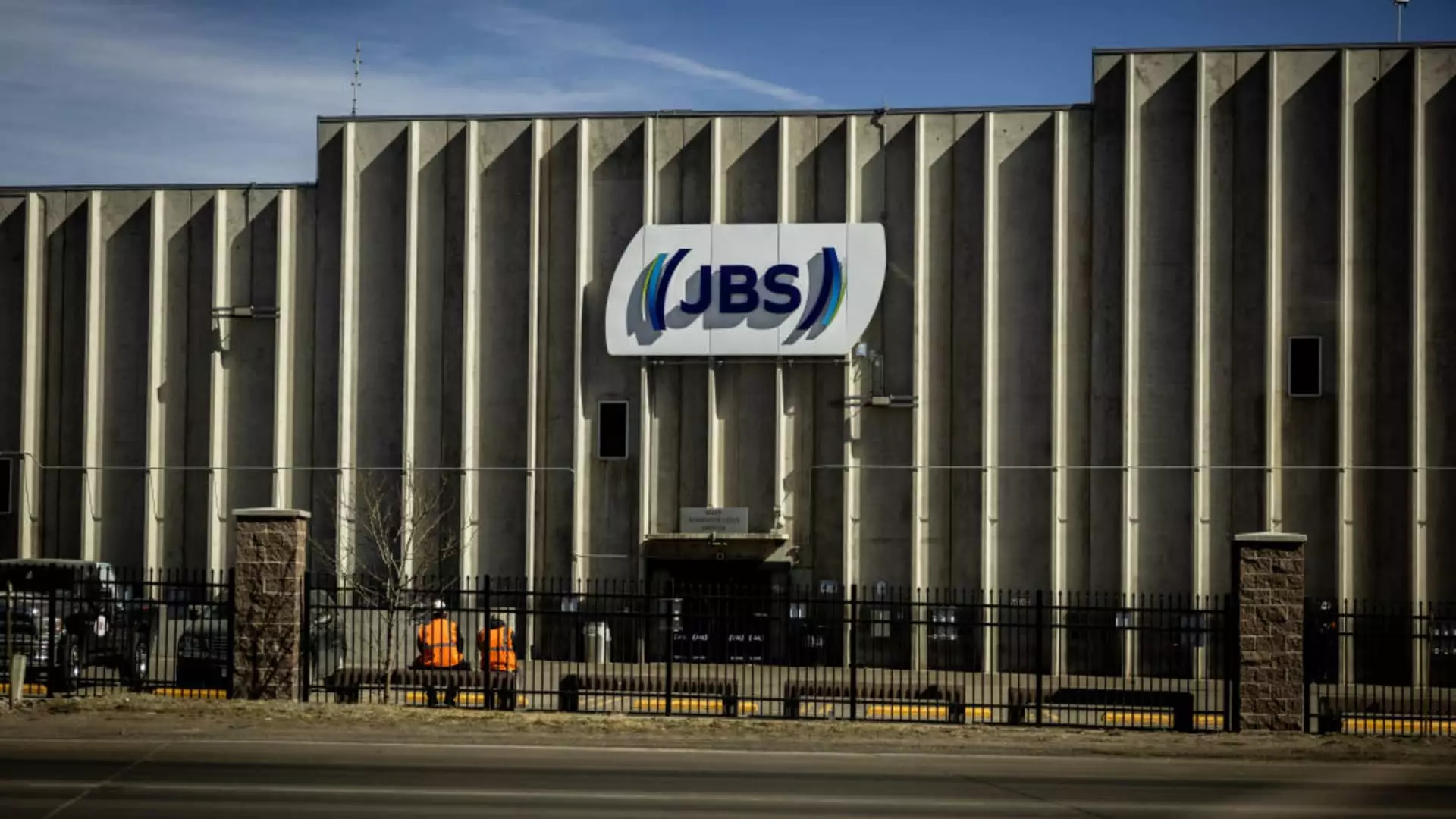On its debut on the New York Stock Exchange, JBS, the Brazilian meatpacking titan, made headlines not just for its hefty opening price of $13.65 per share, but for the undercurrents of controversy that accompanied its ascent. With a staggering market cap of $30 billion, the company eclipsed American rival Tyson Foods, valued at roughly $19.82 billion. However, beneath the veneer of success lurks a narrative steeped in legal woes and ethical dilemmas that challenge the very fabric of corporate integrity.
JBS’s journey began over seventy years ago, and since then, it has become a formidable player in the global meat industry. While its reported net revenue of $77.2 billion paints a picture of a thriving business, it’s essential to scrutinize the darker corners of its operation that could tarnish such a façade. Is this moment in JBS’s trajectory a testament to corporate resilience, or merely business as usual in a landscape that often prioritizes profits over principles?
A Turbulent Path to the Public Market
The timeline leading up to JBS’s U.S. public market listing is a convoluted saga riddled with setbacks and scandals. Initially slated for debut in 2009, the company’s plans were stalled, only to resurface in 2016 amidst a backdrop of corruption investigations. Such a delayed entry casts a long shadow over its current operations, raising questions about corporate oversight and accountability. If a company must navigate such a tumultuous history to secure a reliable market foothold, what does that reveal about the systemic issues within our regulatory frameworks?
At the heart of this scrutiny is J&F Investimentos, the holding entity that controls JBS. Following a crippling bribery scandal in 2017, where J&F paid $3.2 billion to settle charges, it became glaringly clear that the company was not merely a player in the global meat market but an entity entwined in corruption’s murky waters. The Batistas, former executives and principal shareholders, appear to embody the paradox of profit and prison—walking away from convictions due to cooperation with authorities. Their return to the board would leave any ethical consumer wondering if JBS is indeed committed to reform or merely restructuring for the sake of profit.
Regulatory Actions and the Shadow of Corruption
Most recently, JBS faced further scrutiny with fines levied by the Brazilian government for purchasing cattle from lands illegally used for farming in the Amazon. This revelation doesn’t just raise environmental concerns but touches upon the broader implications of corporate governance in a world increasingly sensitive to ecological sustainability. Critics quake at the thought of a major market player, like JBS, further facilitating ecological degradation in favor of profit.
Moreover, prior no-strings-attached donations to political figures—such as pilgrimage contributions to President Trump’s inauguration—serve to highlight a troubling intersection of big business and politics, giving rise to an environment where ethical business practices may be sacrificed at the altar of influence and access. It echoes a clearer narrative: that in the pursuit of profit, JBS, like many corporations, may have compromised its ethical standing.
The Fight for Public Trust
As JBS embarks on its journey on the New York Stock Exchange, the question remains whether it can mend its tarnished reputation while continuing to expand its international operations. The company’s operations in Brazil, the U.S., and Australia form a multi-national empire, yet each local market is burdened by its own unique set of ethical standards and consumer expectations.
Public concern regarding JBS’s long history of corruption poses a critical question: can a company with such a checkered past truly foster genuine corporate responsibility? As investors and consumers grow increasingly aware of the impact of their choices, the pressure mounts on JBS to rise above its historical entanglements and embrace a future defined by transparency and accountability.
This transformation must be more than mere rhetoric; it requires actionable change to restore faith among stakeholders. In an era increasingly defined by corporate accountability and ethical consumerism, JBS’s challenge is clear. It’s one thing to thrive in numbers and markets, yet an entirely different feat to command respect based on trust and integrity. The duality of fortunes stemming from such a wealthy company’s history poses both a challenge and an opportunity. And therein lies the fundamental dilemma of JBS’s controversial ascent on the global stage.

